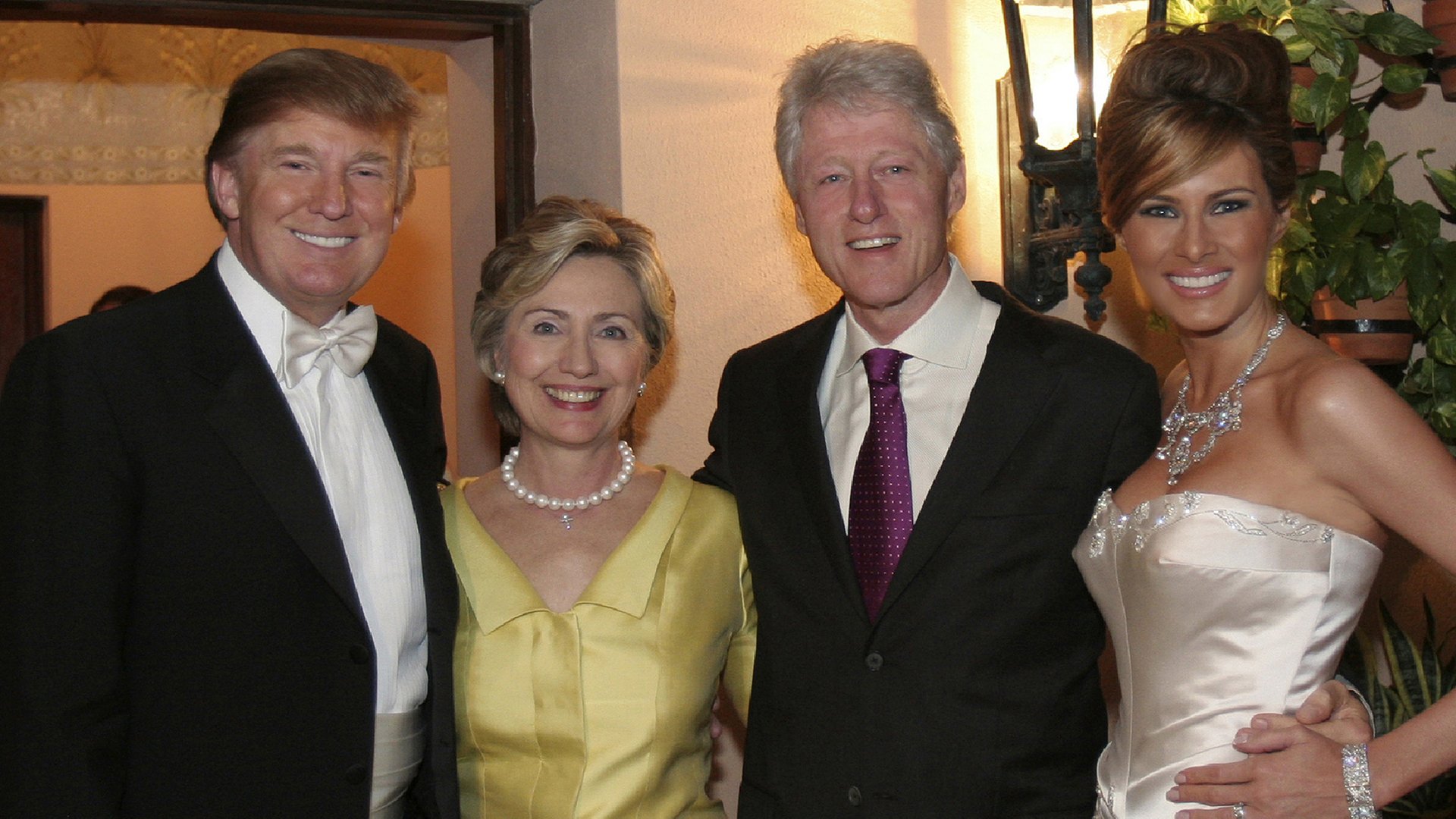Trumps ignorant trade plans are no different than Hillary, Bernie, or Obama
 Donald Trump’s speech on trade was more of the same — which is to say, more of the same thing we’ve been hearing from Hillary Rodham Clinton, Bernie Sanders, and Barack Obama.
Donald Trump’s speech on trade was more of the same — which is to say, more of the same thing we’ve been hearing from Hillary Rodham Clinton, Bernie Sanders, and Barack Obama.
Trump promised to label China a “currency manipulator” and to impose duties on Chinese-made goods, as well as to bring World Trade Organization cases against the Chinese in response to unfair subsidies. The specter of Chinese currency manipulation was an obsession of the Obama administration for some time. What is meant by “currency manipulation” is a country’s using monetary policy to make its exports more attractive to foreign buyers. By that criterion, China is a currency manipulator, as is the United States, the United Kingdom, the European Union, Japan, Switzerland, and practically every significant economic power on earth. The Federal Reserve exists, in part, to do this, and it explicitly considers foreign-exchange rates and their impact on the U.S. economy in its calculations.
In reality, anxiety about Beijing’s artificial currency devaluation has subsided over the past year because Beijing has been pushing as hard as it can in the opposite direction, having spent half a trillion dollars since last August trying to prop up the renminbi rather than trying to drive it down. China has to buy imports, too, and like any other modern industrial economy, it relies on foreign-sourced materials and inputs for critical parts of its production, including exports. China, and the world, would be better off in the long term with a floating renminbi, but the markets have in fact done a reasonably good job disciplining Beijing in this matter.
Chinese currency policy — and Chinese trade policy at large — is a minor factor when it comes to what Trump says is his main interest, which is employment and wages in the United States. Study after study has shown that automation is a larger and more significant factor in factory employment than is the price of tea in China. That is why promises to bring back lost factory jobs are doomed to fail: Factory jobs have in the main been lost not because of foreign competition but because our factories have become more efficient and need fewer workers. The same thing happened with agriculture an age ago, and it will happen with other industries in the future.
NAFTA, the trade agreement Trump promises to gut, has in fact had a modest positive effect on U.S. employment and wages. Investment abroad by U.S. multinationals (“moving our jobs to Mexico!”) is associated with higher domestic employment by the same firms, as savings from gains in productivity are reinvested. The simplistic version that Trump relies on — that Americans lose out every time a widget is made in Mexico or China — is untrue, and relying on it to organize U.S. economic policy is destructive.
Trade imposes costs, but meaningful analysis has to count the benefits, too.
Trump promised to appoint a national “trade prosecutor,” apparently ignorant of the fact that we have a team of them already. He promised to file WTO cases against China, apparently ignorant of the fact that the Obama administration, and its predecessors, do this all the time — there was a case being filed on the very day Trump was speaking, in fact, having to do with truck tires. The United States has been on both sides of those disputes — that is what the WTO is there for — e.g., Senator Marco Rubio’s beloved sugar barons and their endless war with their Brazilian competitors. Trump’s argument here is the same as it always is: We’ll do the same things we’ve been doing, but it will turn out differently, because Donald Trump is so smart, so good, so honest, etc.
Likewise, Trump promises to impose “buy American” rules on certain government projects, apparently unaware that such rules already are in place — and that they impose enormous costs on American companies, making them less competitive rather than more competitive.
If all Trump meant were the more aggressive use of existing trade-negotiation tools, that would be one thing, but he is determined to interrupt U.S trade relations around the world — not only with China — with his dream of enormous tariffs and his zero-sum thinking about trade, the economic equivalent of a pre-Copernican cosmology. The United States is a massive importer and a massive exporter. Trade sustains millions of American jobs, directly through employment in trade-oriented sectors and indirectly as lower consumer prices create opportunities elsewhere in the economy. Abusive trade practices undertaken by foreign governments are not a very significant factor in U.S. economic conditions, and, to the extent that they are a factor, we already have a reasonably good system in place for addressing them — one created by the very international trade pacts that Trump and others abominate and propose to gut. The United States has been well served by open trade policies and would do well to expand them rather than to retreat from them.
Trump — like Clinton and Sanders and many others — is appealing to ignorance and anxiety, using trade to provide himself with the one thing every politician really needs: an enemy. But when it comes to our underperforming economy, the enemy isn’t in Beijing or Mexico City, but in Washington, where an endless army of regulators and tax collectors treat the U.S. economy like a pet on a leash. Trump and other anti-traders propose giving them more power and putting businesses and entrepreneurs on a shorter leash.
